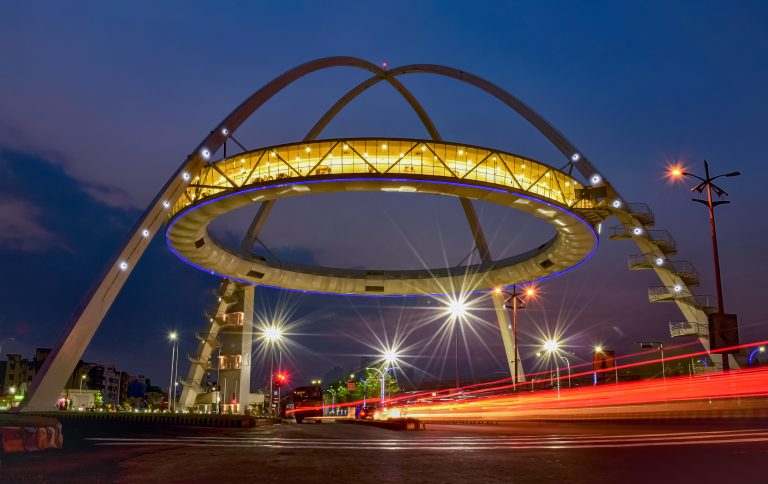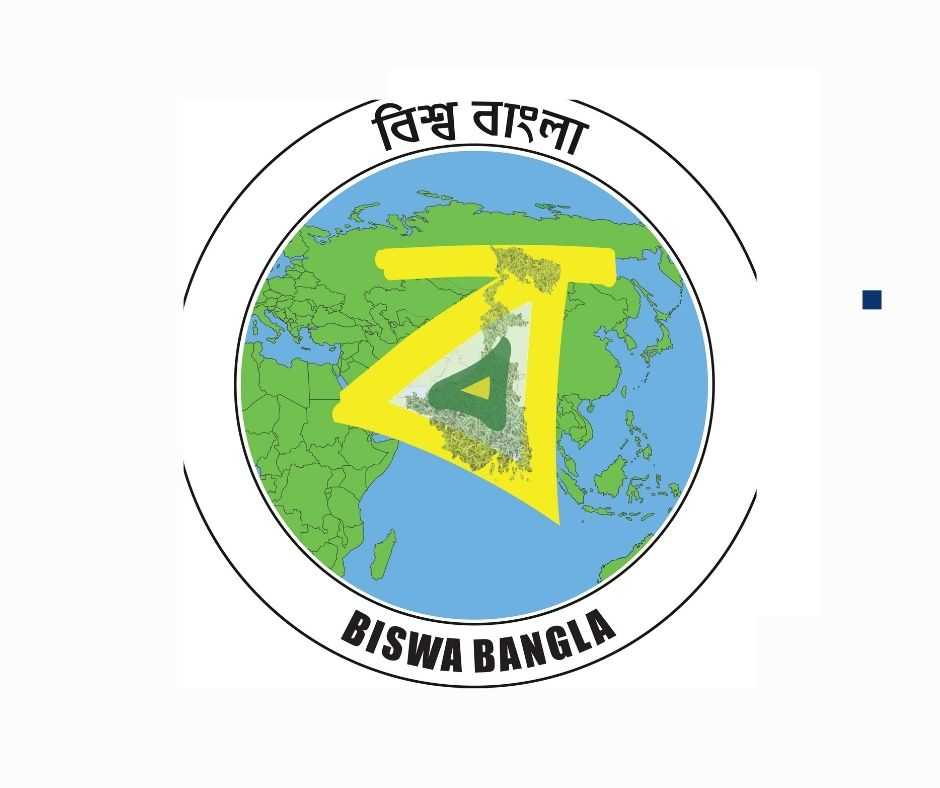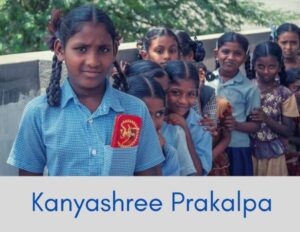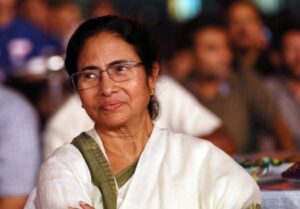Biswa Bangla, the brainchild of Mamata Banerjee, was aimed to promote Bengal’s art and craft at a global level through conservation, revival, and marketing. After coming to power in 2011, Didi initiated the development of micro, small and medium enterprises. In the process, Biswa Bangla came into existence in 2013. Later, the state government widened the scope of Biswa Bangla by associating it with brand Bengal.

Biswa Bangla is an MSME enterprise established by the Government of West Bengal to promote the dying arts and crafts of the state. Biswa Bangla stores have an exclusive collection of world-class authentic products, all handmade in Bengal.
The Biswa Bangla Marketing Corporation (BBMC) supports the livelihoods of handloom weavers, craftswomen, and traditional artisans of the state through the strategic marketing of handloom, handicraft, and other heritage products of West Bengal.
Biswa Bangla Products
Biswa Bangla is about niche products that are about bringing back dying arts from the brink. Biswa Bangla has more than 5,000 products. The arts being revived at Biswa Bangla are Darjeeling tea, masks, Muslin, attar, Kalimpong cheese, mustard sauce, honey from the Sunderbans, Bonoloukhi ghee from Shantiniketan, and other products that have heritage values.
They have a collection of 24 kinds of dolls from various parts of the state.
One of its many finds was Shakhawat Hussain Khan, whose great grandfather had made the fragrant silk quilt, Balaposh, for the first nawab of Bengal, Murshid Quli Khan. Hussain makes one or two such pieces a month for Biswa Bangla.
For the production of attar, Biswa Bangla has tied up with the oldest attar company in Kolkata -Allahbaksh, and Khudabaksh.
They are trying to revive crafts like Nakshi Kantha, Bostani Kantha, Jamdani quilts, and attar perfumes, that are on the verge of extinction.
Biswa Bangla Sarees
There are Jamdani sarees, spun by hand and foot tools that take a year to complete. Each of these masterpieces costs about Rs 1 lakh. Then there is the Indo-Portuguese silk-muslin shawl, each of which takes about six months to embroider and work by four women for three months to complete a piece.
Alongside, there are special initiatives such as Project Muslin, the fine fabric that has lost its market to power loom products. The project aims at reviving the fabric and supporting the 800 remaining muslin weavers in the country.
The stores have Muslin products such as handkerchiefs, dhotis, dyeing rolls, bed sheets, and clothes for men and women. Products being revived are the Carmichael Rumal, a handkerchief made of Murshidabad silk.
Biswa Bangla has revived many heritage products of Bengal. Some handicrafts and handloom products, such as Jamdani and Muslin could be revived with Biswa Bangla’s strategic efforts in product diversification, design development, and quality management.
While the products retain the deep-rooted elements of the state’s heritage, they are often strategically developed in contemporary design to suit the needs and preferences of today’s customers.
While the ministry of textiles and the weaver’s service center are helping to revive the fabric, designers are pitching in with their expertise to add value and commercial viability to these products.
Biswa Bangla has also increased focus on the marketing of handloom and handicraft products that have been conferred on Geographical Indication (GI), such as diversified products made with Madurkathhi from Medinipur, different size and design variants of Chhau masks from Purulia, Dokra handicrafts from Bikna and Dariyapur, wooden mask from Kushmandi, etc., due to their unique quality, owing to their provenance.
The pricing of the products ranges from Rs 100 to about Rs 3 lakh. Lower in the price bracket are handmade soaps and some other FMCG goods, while the higher end comprises mostly delicate and experimental textile and saris.
Biswa Bangla – A Social Enterprise To Support Artisans
Biswa Bangla is also a social enterprise. The operating profit of Biswa Bangla is plowed back to the artisans and weavers engaged with the venture. Biswa Bagla is imparting training to more weavers. These initiatives have increased the employment generation in the handloom sector.
BBMC supports the thousands of craftswomen, weavers, and traditional artisans in the state to develop handicraft and handloom products that stand out in quality and uniqueness. Their social business approach is to create entrepreneurs out of artists and bringing back economic self-reliance to the bottom of the pyramid.
The MSME department reaches out to the individual entrepreneurs, who are willing to take up revival projects of any form of the state’s indigenous arts under the brand Biswa Bangla.
BBMC is constantly widening its outreach in different districts across the length and breadth of Bengal, ranging from the skillful craftspersons of Jangalmahal to the immensely creative and enterprising people in the hills of Darjeeling.
Biswa Bangla Store
The first Biswa Bangla store came up in 2014 in Kolkata. Do You Know Why Kolkata is called the city of Joy? At present, there are nine Biswa Bangla showrooms, most of them concentrated in West Bengal. Showrooms in Kolkata are located at Park Street, Dhakuria, New Town, and at the airport. Outside Kolkata, the stores are in Darjeeling, Bagdogra airport, New Delhi, and Hyderabad.
Biswa Bangla is not just targeting new stores, but also planning to increase the number of artisans involved in the initiative.
There are plans to make the presence of the stores beyond India to countries such as England, the United States, mainly where there are sizeable Bengali populations.
Biswa Bangla Online
One can also purchase the Biswa Bangla products online in India and abroad. The official website of Biswa Bangla, https://www.biswabangla.in, sells all the products.
In India, Amazon and Myntra also sell the brand’s products.
Some states in India have evinced interest in the business model of Biswa Bangla and are looking at adopting it.
Biswa Bangla Brand
The chief minister of West Bengal, Mamata Banerjee, has designed the Biswa Bangla logo herself. The fearless street fighter, Mamata has become the prominent political face of India.

The logo is associated with the brand Biswa Bangla. It is used on Government occasions such as the Bengal Global Business Summit.
Bengal Government has also introduced Biswa Bangla scholarships.
The longest road in Kolkata, connecting the airport and the city and passing through Newtown Rajarhat, a satellite township, has been named Biswa Bangla Sarani. Biswa Bangla Gate, a gate cum hanging restaurant, is developed as a part of the beauty project of New Town.
Biswa Bangla awards are given to prominent professionals in the field of arts and culture.
There is also a plan to open a Biswa Bangla Mall, where an entire floor will display the Biswa Bangla products. Besides promoting Bangla artifacts and handicrafts, the store plans to promote tourism in Bengal and Kolkata.
The CM was keen on opening the store where Biswa Bangla products would be showcased to people visiting the city from across the country and abroad.






[…] Also Read: Biswa Bangla Mamata Banerjee’s Vision To Rebrand Bengal […]